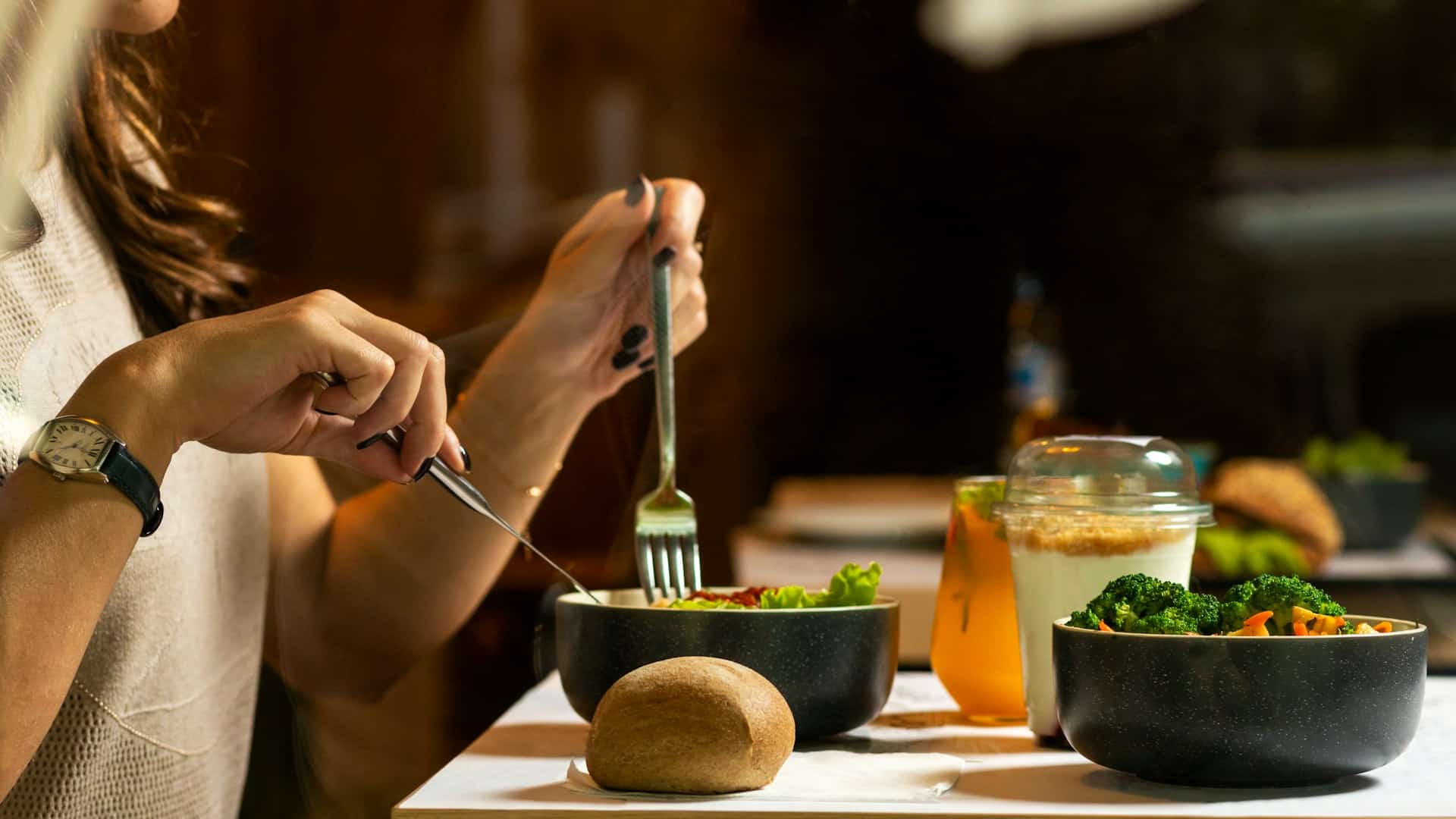
05 Jul How Intermittent Fasting and Other Trendy Diets Affect Your Teeth
We meet a lot of people who are enthusiastic about a trendy new diet they’re trying. Most of us have at least one friend who swears by intermittent fasting or the Noom diet, or one who is passionate about eating only plants. But how does fasting affect your teeth? Is a vegan diet good or bad for your dental health? What about keto or Noom—do these special diets have any effects on your teeth?
Nutrition plays a big role in holistic dentistry, which is why we suggest talking to your dentist before you try a new diet. To be honest, we think the Standard American Diet is actually the worst one for your teeth. However, different diets have pros and cons. Let’s take a look at some of the current trending diets and how they affect your dental health.
Pros and Cons of Trendy Diets, and How They Affect Your Teeth
Intermittent Fasting
Benefits:
- Your saliva has a neutral pH for most of the day, because you are not consuming sugars as often. A neutral pH helps control the inflammation and acid attacks that cause gum disease.
- Intermittent fasting may reduce stress, which is good news if you have bruxism or a TMJ disorder.
Cautions:
You must remember to drink water frequently between meals. Chewing and swallowing stimulate saliva production, so when you’re fasting, you’ll need to drink extra water to keep your mouth hydrated. Dry mouth is one of the leading causes of tooth decay and gum disease, because it’s so much easier for plaque to build up in a dry mouth. So if you want to reap the dental benefits of intermittent fasting, don’t forget to drink water.
The Noom Diet
Benefits:
- The Noom diet encourages eating mostly nutrient-dense foods with high water content. Foods that fall into this category also promote good dental health.
- As a psychology-based diet, it can train you to form better lifestyle habits (like flossing every day).
Cautions:
No foods are off-limits, so you have to self-regulate when it comes to eating foods that are bad for your teeth.
The Keto Diet
Benefits:
- Eating a sugar-free, low-carb diet can reduce your risk of cavities. The bacteria that cause plaque feed on sugar and carbohydrates, so avoiding those foods can have a positive effect on your dental health.
Cautions:
Halitosis (bad breath) is a typical side effect of the keto diet. You will need to keep up with a strict brushing and flossing regimen. You might also want to consider using mouthwash or chewing gum with xylitol to freshen your breath.
The Vegan (Plant-Based) Diet
Benefits:
- A vitamin-rich diet of whole foods like fruits, nuts, vegetables, and beans can be very good for your teeth.
- Plant-based nutrients like calcium have higher bioavailability, which means they are easier for your body to absorb and use.
Cautions:
Processed foods are always bad for your teeth, even when they’re plant-based. Vegans need to make sure they are eating as much fresh food as possible, so that they don’t develop any vitamin deficiencies that might affect their dental health.
Holistic Dentistry in Prescott, Arizona
Eating the right foods will give you stronger, healthier teeth. If you’re thinking about trying intermittent fasting or starting a new diet, talk to a holistic dentist to find out how it might affect your teeth. If you’re looking for a dentist that brings your entire wellbeing into consideration, contact Prescott Dentistry to make an appointment today.
Photo by Farhad Ibrahimzade on Unsplash used with permission under the Creative Commons license for commercial use 6/27/2024.



